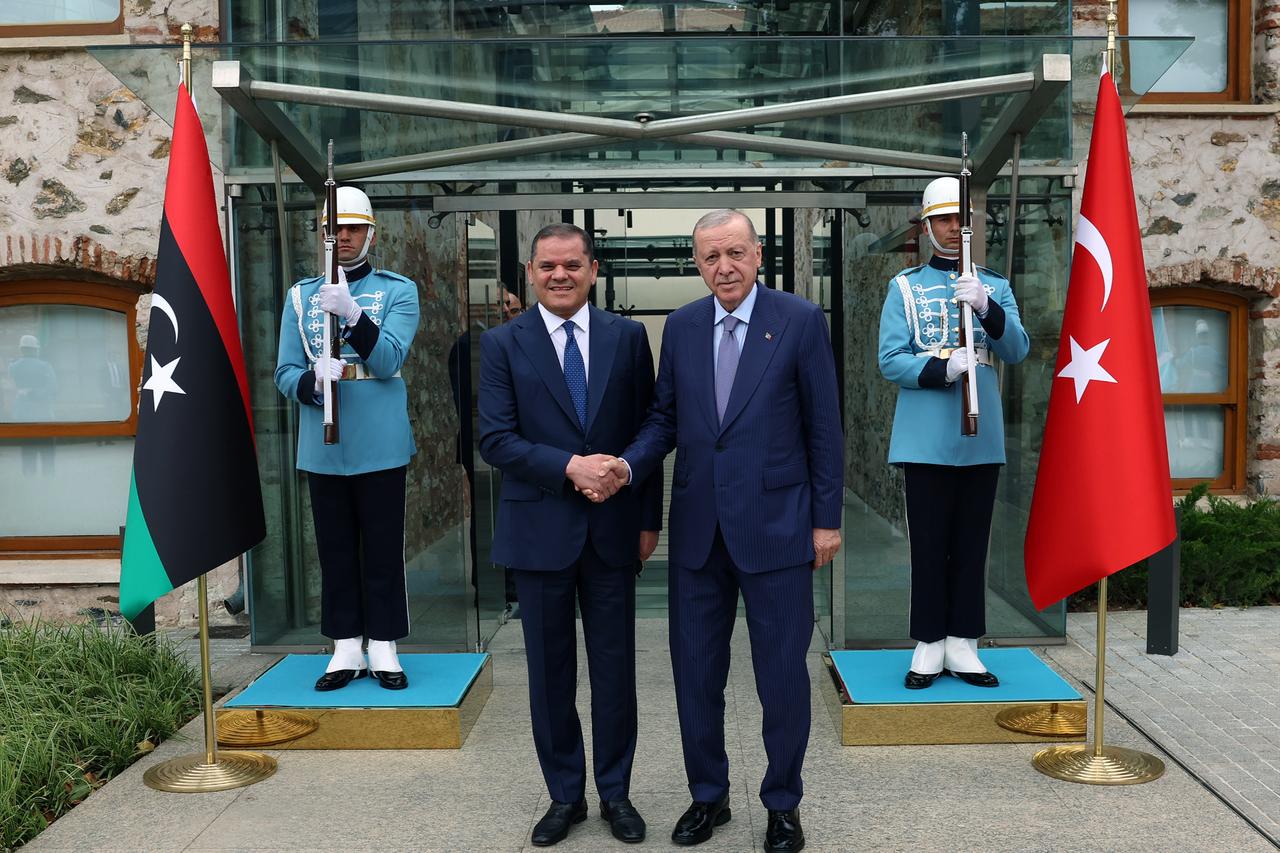
Turkish President Recep Tayyip Erdogan held a telephone call with Abdul Hamid Dbeibah, Prime Minister of Libya’s Government of National Unity, to discuss bilateral relations and regional developments, Türkiye’s Communications Directorate said Thursday.
According to the statement, Erdogan told Dbeibah that Türkiye is closely monitoring developments in Libya and will continue to do its part to ensure the country’s security and stability.
The Turkish president stressed the importance of ongoing cooperation between Türkiye and Libya in various sectors, particularly energy, and noted that joint efforts to protect the rights and interests of both countries in the Eastern Mediterranean would continue.
The conversation came amid growing tensions over a June 2025 memorandum of understanding signed between Libya’s National Oil Corporation and Türkiye’s state petroleum company for offshore energy exploration in the Mediterranean.
Egypt formally rejected the agreement, sending a note verbale to the United Nations on Sept. 8 that stated the deal violates Egyptian maritime boundaries.
According to the note, Egypt’s Permanent Mission to the U.N. said that “Area 4” referenced in the memorandum “overlaps with the maritime boundary of the Arab Republic of Egypt.” The Egyptian government added that it “rejects any measures, conduct or legal effects that flow from that memorandum.”
The June agreement is the latest development in a broader regional dispute over maritime jurisdiction in the Eastern Mediterranean. In 2019, Türkiye and Libya signed a maritime boundary agreement that delineated Exclusive Economic Zones between the two nations in potentially hydrocarbon-rich waters. That deal was registered with the United Nations in October 2020.
The Türkiye-Libya accord has since reshaped energy dynamics in the region, prompting objections from Egypt, Greece and other neighboring countries that assert competing claims over the strategically significant waters.
Egypt said it remains “committed to cooperate, consult and negotiate with neighboring states in good faith to reach an agreement on the delimitation of maritime boundaries based on the principles of international law.”